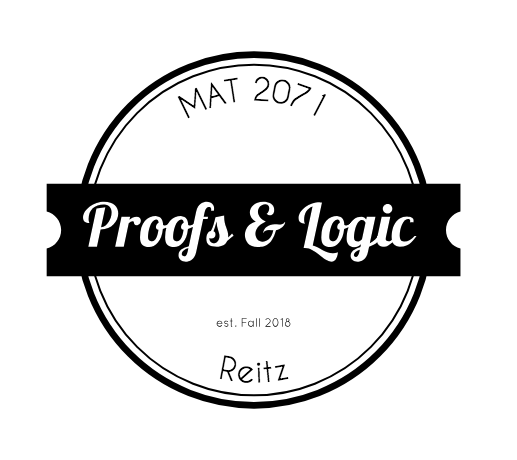© 2025 2018 Fall – MAT 2071 Proofs and Logic – Reitz
Theme by Anders Noren — Up ↑
© 2025 2018 Fall – MAT 2071 Proofs and Logic – Reitz
Theme by Anders Noren — Up ↑
Our goal is to make the OpenLab accessible for all users.
Our goal is to make the OpenLab accessible for all users.

Recent Comments